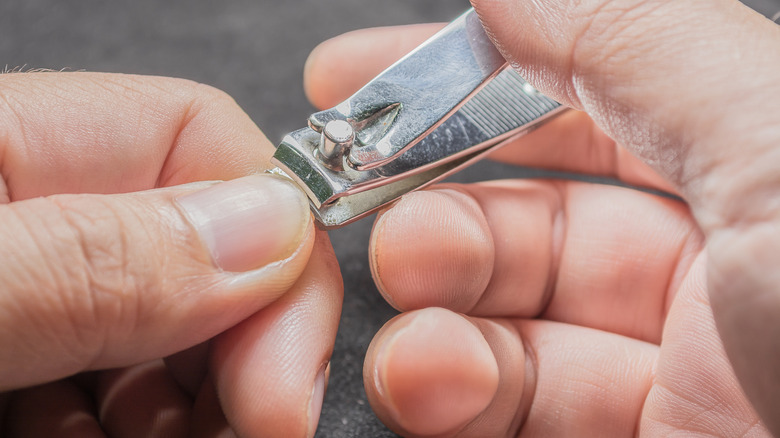
Have you ever cooked a meal, washed your hands, and still noticed the aroma of the ingredients lingering on your fingers? This is common when handling foods with strong odors like onions, garlic, or hot peppers. The smell can be particularly potent if these items get trapped under your fingernails during cooking (via Livestrong). If your fingernails have started to emit an unexpected smell unrelated to cooking, the reason might be simpler than you think.
According to experts at Livestrong, our nails can sometimes release a sulfur-like smell after being cut. The keratin proteins in nails contain sulfur compounds, which can be released upon cutting. Additionally, trimming the nails disrupts the nail growth process by affecting the proteinase enzyme (via Traction Beauty). This can trigger rapid nail growth, and the resulting friction may also produce a sulfur odor.
If the smell is due to a recent trimming, experts suggest that the odor will typically fade away soon after (via Livestrong). However, if the fingernail odor persists, it might be indicative of a health condition.
Fungal infections can cause fingernail odor

A fungal infection can also be the culprit behind fingernail odor. While more commonly affecting toenails, fungal infections can occur in fingernails as well. Nail infections are quite prevalent. Dr. Raza Aly, professor emeritus of dermatology at the University of California, San Francisco Medical Center, mentions via LiveScience that 50% of people will encounter nail fungus by age 70.
Dr. Anna Chacon, a board-certified dermatologist from Miami, notes that nail fungus, also known as onychomycosis, can cause fingernails to emit a persistent cheese-like odor (via Livestrong). If you suspect a nail fungus infection, consult a physician for an evaluation of any underlying health issues. Treatment success can vary, with the Mayo Clinic suggesting that mild cases may respond to over-the-counter creams, while more severe infections might require prescription antifungal medications, nail polishes, or creams applied over time.




